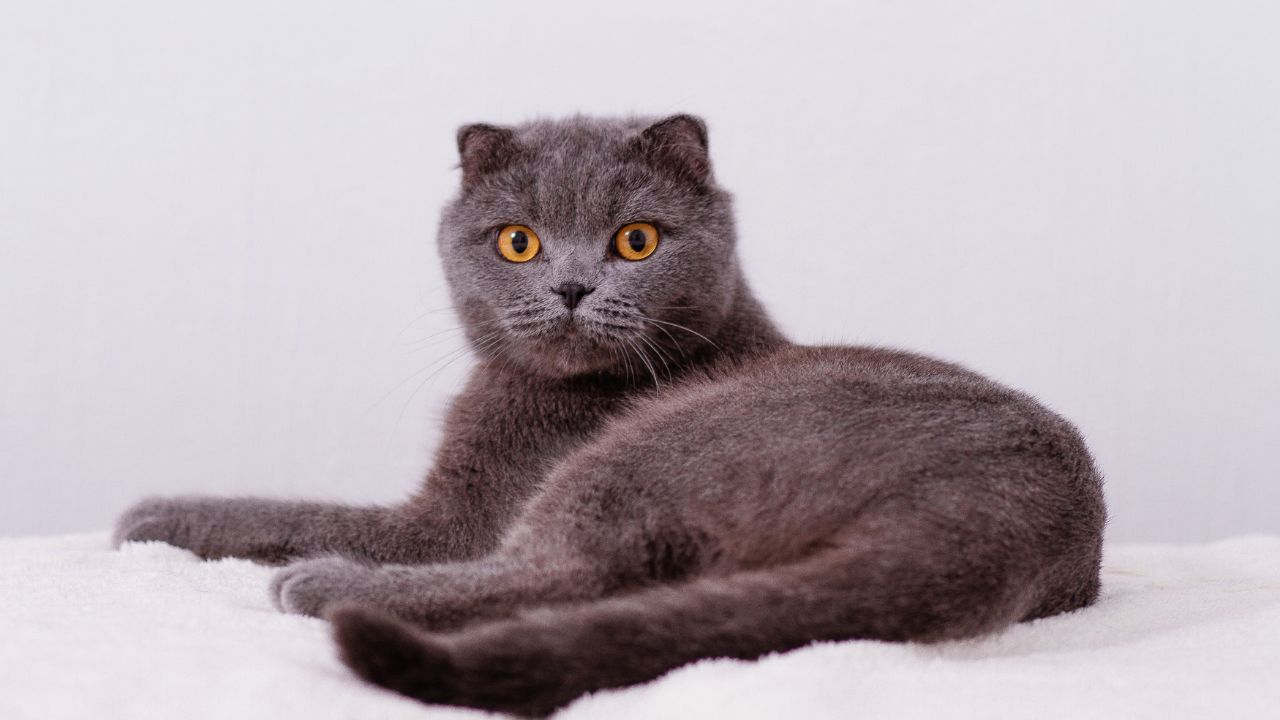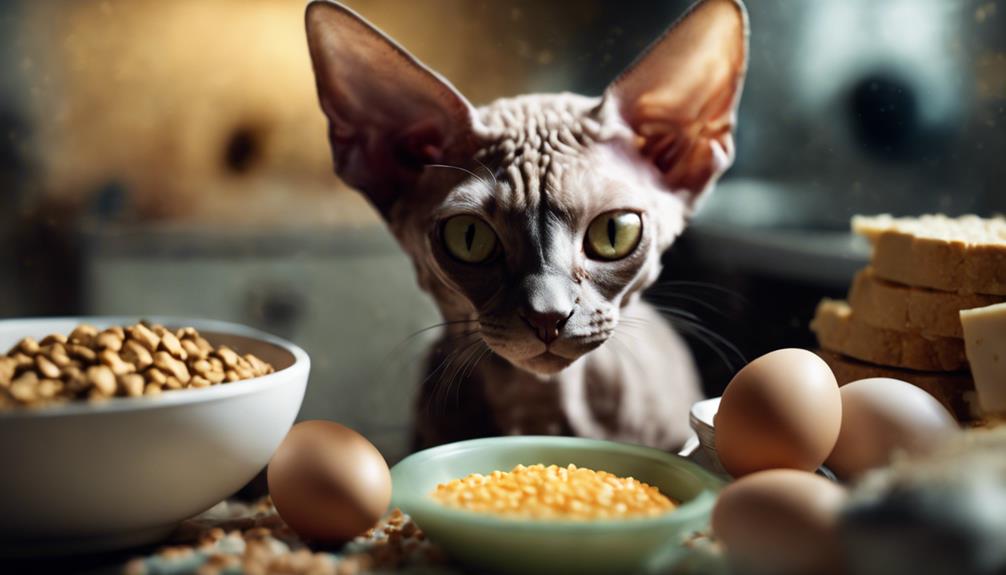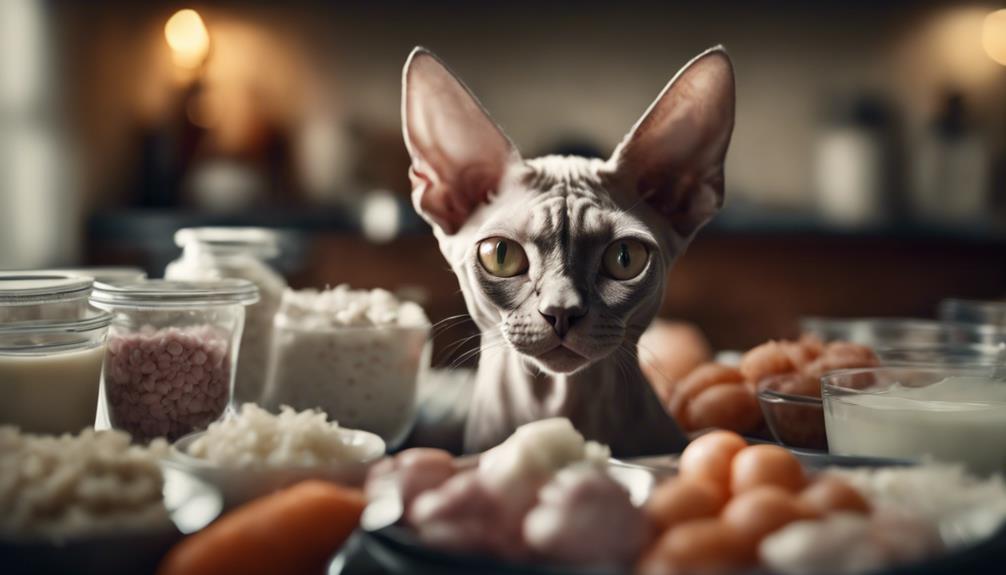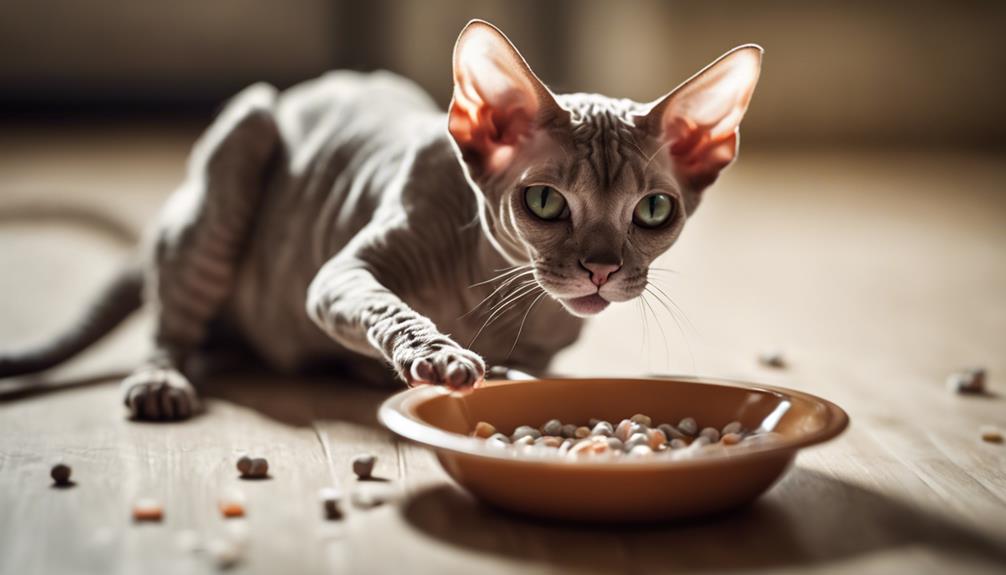Scottish Fold kittens are one of the most adorable cat breeds. They are known for their unique folded ears that give them an endearing appearance. If you are looking to adopt a Scottish Fold kitten, it is important to know how to identify them.
One of the most obvious features of Scottish Fold kittens is their folded ears. However, not all Scottish Folds have folded ears. Some may have straight ears, and these are known as Scottish Shorthairs. It is important to note that Scottish Folds with folded ears should not be bred with other Scottish Folds with folded ears, as this can lead to health problems.
Another way to identify a Scottish Fold kitten is by its round, sturdy body and bushy medium-long tail. They are medium-boned and have a soft and plush coat that can vary in texture. Scottish Fold kittens are known for their affectionate and charming personality, making them great family pets.
History and Origin
The Scottish Fold is a unique breed of cat that originated in Scotland in the early 1960s. The breed was discovered by a shepherd named William Ross, who found a white barn cat named Susie with folded ears on a farm near Coupar Angus in Perthshire, Scotland, in 1961.
Susie’s unusual ears were caused by a genetic mutation that was passed down to her offspring. Ross began breeding Susie’s kittens and consulting with geneticists to develop the breed. The Scottish Fold was officially recognized by the Cat Fanciers’ Association (CFA) in 1978.
The Scottish Fold’s popularity quickly spread throughout the world, and they are now one of the most recognizable breeds of cat. The breed is known for its unique appearance, with folded ears and a round face. Scottish Folds come in a variety of colors and patterns, including white, black, blue, cream, and red.
Despite their popularity, Scottish Folds are still a relatively rare breed. The CFA only recognizes two types of Scottish Folds: the shorthair and the longhair. The breed is also recognized by other organizations, including The International Cat Association (TICA) and the American Cat Fanciers Association (ACFA).
In conclusion, the Scottish Fold is a unique and popular breed of cat that originated in Scotland in the early 1960s. The breed was discovered by William Ross, who found a white barn cat named Susie with folded ears on a farm near Coupar Angus in Perthshire, Scotland. The breed quickly gained popularity and is now recognized by several cat organizations worldwide.
Physical Characteristics
When it comes to identifying a Scottish Fold kitten, their physical characteristics are a good place to start. Scottish Folds are known for their unique folded ears, but they also have other distinguishing features that set them apart from other breeds.
Ears
The most distinctive feature of a Scottish Fold kitten is their ears. Unlike most cats, which have upright ears, Scottish Folds have ears that fold forward and downward. This gives them an adorable, owl-like appearance that is hard to resist.
It’s important to note that not all Scottish Fold kittens are born with folded ears. Some kittens are born with straight ears, and their ears will only begin to fold when they are a few weeks old. This is because the cartilage in their ears is soft and pliable at birth, and it takes a little time for it to stiffen and form the characteristic fold.
Tail
Another feature that sets Scottish Fold kittens apart is their tail. Scottish Folds have a medium to long tail that is in proportion to their body. The tail should taper and have a rounded tip, rather than a whip-like appearance.
Coat
Scottish Folds come in both shorthair and longhair varieties. The shorthair variety has a dense, plush coat that is soft to the touch. The longhair variety has a soft, silky coat that is longer and fluffier than the shorthair variety. Both types of Scottish Folds come in a variety of colors and patterns, including solid colors, tortoiseshell, tricolor/calico, bicolor, tabby, ticking, smoke, shaded, and spots.
It’s worth noting that Scottish Folds are often confused with British Shorthairs, which are a similar breed with a similar appearance. However, British Shorthairs do not have folded ears, so if you’re trying to identify a Scottish Fold kitten, the ears are the most important feature to look for.
In summary, if you’re trying to identify a Scottish Fold kitten, look for their distinctive folded ears, medium to long tail, and plush coat. Whether you’re a fan of shorthair or longhair cats, Scottish Folds are an adorable and unique breed that are sure to steal your heart.
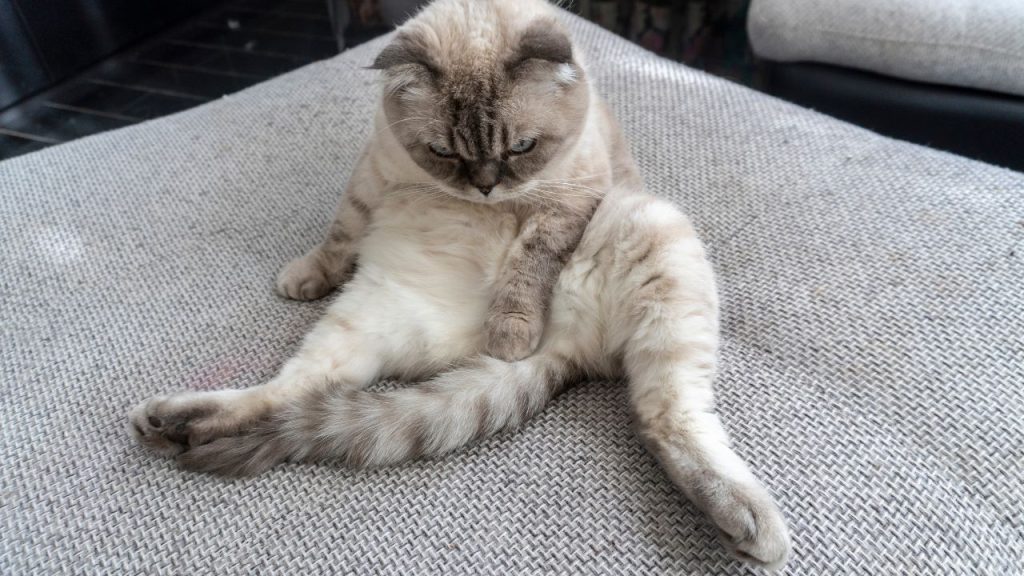
Temperament and Personality
Scottish Fold kittens are known for their sweet and affectionate personalities. They are friendly and sociable cats that love to spend time with their owners. They are also known for being quiet and calm, making them a great choice for families with children or those living in apartments.
Despite their calm demeanor, Scottish Folds are also playful and curious cats. They enjoy playing with toys and exploring their surroundings. They are adaptable to different environments and can easily adjust to new situations.
One of the most distinctive traits of Scottish Fold kittens is their loyalty to their owners. They form strong bonds with their families and enjoy being close to them. They are also known for their love of attention and will often seek out affection from their owners.
Overall, Scottish Fold kittens make great pets for those looking for a friendly, affectionate, and adaptable cat. Their calm and quiet nature, combined with their playful and curious personalities, make them a joy to have around.
Health Concerns
Scottish Fold kittens are adorable, but they can be prone to certain health concerns. As with any breed of cat, it is important to be aware of potential health issues so that you can take appropriate measures to keep your kitten healthy and happy.
Genetic Mutations
Scottish Fold cats are known for their unique folded ears, which are the result of a genetic mutation. Unfortunately, this mutation can also lead to other health problems. One of the most serious is osteochondrodysplasia, also known as Scottish Fold Disease. This condition affects the development of cartilage in the body and can cause arthritis, spinal abnormalities, and other issues.
Degenerative Joint Disease
Degenerative joint disease, also known as arthritis, is a common problem in Scottish Fold cats. This is because the breed is prone to joint problems, which can be exacerbated by obesity. If your kitten is overweight, it is important to work with your veterinarian to develop a weight loss plan to help prevent joint problems.
Infections
Scottish Fold cats are also prone to certain infections, such as ear infections and mites. Ear infections can be caused by a variety of factors, including allergies, bacteria, and yeast. Mites can also cause ear infections, as well as skin irritation and other issues. If you notice any signs of infection, such as redness, swelling, or discharge, it is important to seek veterinary care right away.
In conclusion, while Scottish Fold kittens are generally healthy, it is important to be aware of potential health concerns. By taking appropriate measures to prevent and treat health problems, you can help ensure that your kitten lives a long and happy life.
Caring for Your Scottish Fold Kitten
Congratulations on adopting a Scottish Fold kitten! These adorable cats are known for their unique folded ears and affectionate personalities. To ensure your kitten grows up healthy and happy, here are some tips for caring for them.
Grooming
Scottish Folds have a dense, plush coat that requires regular grooming. Brushing your kitten’s coat once or twice a week will help remove loose hair and prevent mats from forming. You can also use a grooming glove or rubber brush to massage their coat and remove any loose fur.
In addition to regular brushing, you should also trim your kitten’s nails every few weeks to prevent them from getting too long and causing discomfort. If you’re not comfortable trimming your kitten’s nails, ask your veterinarian or a professional groomer for help.
Nutrition
Feeding your Scottish Fold kitten a balanced diet is essential for their health and growth. Look for high-quality kitten food that is formulated to meet their nutritional needs. You can also talk to your veterinarian about the best diet for your kitten based on their age, weight, and activity level.
Be sure to provide fresh water for your kitten at all times. You may also want to consider investing in a cat fountain to encourage them to drink more water.
Exercise
Scottish Folds are moderately active cats that enjoy interactive play. Provide your kitten with toys that stimulate their natural hunting instincts, such as feather wands or laser pointers. You can also invest in a cat tree or scratching post to provide them with a place to climb and scratch.
Regular exercise is important for your kitten’s physical and mental health. Aim for at least 20-30 minutes of playtime each day to keep them active and engaged.
Remember, caring for a Scottish Fold kitten requires patience, dedication, and love. With proper care and attention, your kitten will grow up to be a happy and healthy adult cat.
Adoption and Price
Adopting a Scottish Fold kitten can be a great way to give a loving home to a furry friend. There are many shelters and rescue organizations that offer Scottish Fold kittens for adoption. Adoption fees for Scottish Folds on rescues and shelters are usually lower compared to breeder’s prices ranging from $60 to $400 on average. The adoption fee serves as the blood which keeps the rescue organizations running and functioning. Most of the rescues operate through the efforts of volunteer members.
When adopting a Scottish Fold kitten, it is important to keep in mind that the initial cost is not the only expense. Health care for your Scottish Fold will be about the same as it would for any other type of cat, as they have the same maintenance requirements as other breeds. According to Excited Cats, health care costs for a Scottish Fold kitten can range from $75 to $11,000 per year. This includes routine vet visits, vaccinations, and preventative care.
If you decide to purchase a Scottish Fold kitten from a breeder, it is important to do your research to ensure you are dealing with a reputable breeder. A Scottish Fold generally costs $35-$200 if you adopt one or approximately $250-$500 when buying a Scottish Fold from a breeder. However, prices can vary depending on the breeder, location, and the kitten’s pedigree.
In conclusion, adopting a Scottish Fold kitten can be a great way to add a new member to your family. Adoption fees are usually lower compared to breeder’s prices, and you get to give a loving home to a kitten in need. However, it is important to keep in mind the ongoing expenses of owning a cat, including health care costs. If you decide to purchase a Scottish Fold kitten from a breeder, make sure to do your research to ensure you are dealing with a reputable breeder.
Conclusion
In conclusion, Scottish Fold kittens are adorable, unique, and highly sought after. They are recognized by the Cat Fanciers’ Association and have a dedicated Scottish Fold Club. Tayside in Scotland is the birthplace of the breed, and they are known for their folded ears, round features, and plush coats.
Scottish Fold kittens are not only cute, but they are also pet-friendly and kid-friendly. They have a high level of sociability and love to interact with their owners. They are not known for their independence, so they prefer to be around their owners most of the time. Scottish Folds are not very vocal and may only meow occasionally.
When looking for a Scottish Fold kitten, it is important to find a reputable breeder who follows ethical breeding practices. You should also ensure that the kitten is healthy and has all the necessary vaccinations. It is also important to provide your Scottish Fold kitten with plenty of toys and interactive activities to keep them mentally stimulated.
Overall, Scottish Fold kittens are a great addition to any household that is looking for a loving, affectionate, and unique pet.

